Znajdują się Państwo na stronie GDDKiA.gov.pl. Poniżej prezentujemy instrukcję instalacji darmowego czytnika ekranu wykorzystującego syntezator oparty na głosie aktora. Dotyczy to systemów operacyjnych rodziny Windows, ponieważ systemy operacyjne firmy Apple posiadają już wbudowane rozwiązanie o nazwie Voice Over.
Instalacja darmowego czytnika ekranu:






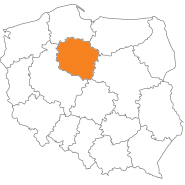
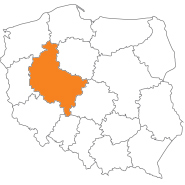
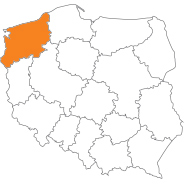
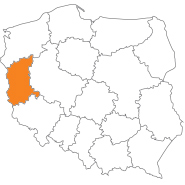
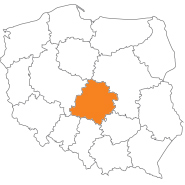
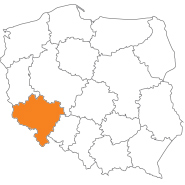
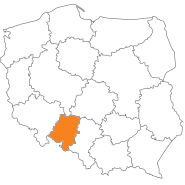
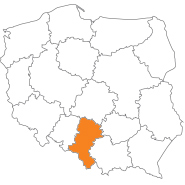
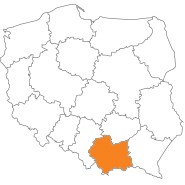
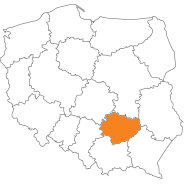
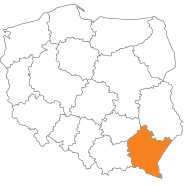
Oddział w Bydgoszczy
ul. Fordońska 6
85-085 Bydgoszcz
tel. centr. 52 323 45 00
fax 52 323 45 04
NIP 554-22-52-485
e-mail: sekretariat_byd@gddkia.gov.pl
Oddział w Gdańsku
ul. Subisława 5
80-354 Gdańsk
tel. centr. 58 511 24 00
fax 58 511 24 05
NIP 584-24-56-536
e-mail: sekretariat_gdansk@gddkia.gov.pl
Oddział w Białystoku
ul. Zwycięstwa 2
15-703 Białystok
tel. centr. 85 664 58 00
fax 85 651 37 83
NIP 542-27-52-914
Oddział w Katowicach
ul. Myśliwska 5
40-017 Katowice
tel. centr. 32 258 62 81
fax 32 259 87 10
NIP 954-24-02-923
e-mail: kat_sekretariat@gddkia.gov.pl
Oddział w Kielcach
ul. Paderewskiego 43/45
25-950 Kielce
tel. 41 34 03 900, 41 345 74 31
fax 41 366 48 04
NIP 657-03-86-703
e-mail: sekretariat_kielce@gddkia.gov.pl
Oddział w Krakowie
ul. Mogilska 25
31-542 Kraków
tel. centr. 12 417 25 00
fax 12 411 01 18
NIP 675-12-72-475
e-mail: sekretariat_krakow@gddkia.gov.pl
Oddział w Lublinie
ul. Ogrodowa 21
20-075 Lublin
tel. 81 532 70 61
fax 81 743 71 68
NIP 712-24-27-134
e-mail: sekretariat_lublin@gddkia.gov.pl
Oddział w Łodzi
ul. Irysowa 2
91-857 Łódź
tel. centr. 42 233 96 00
fax 42 233 96 08
NIP 725-17-13-273
e-mail: sekretariat_lodz@gddkia.gov.pl
Oddział w Olsztynie
ul. Warszawska 89
10-083 Olsztyn
tel. centr. 89 521 28 00
fax 89 527 23 07
NIP 739-32-79-711
Oddział w Opolu
ul. Niedziałkowskiego 6
45-085 Opole
tel. centr. 77 401 63 00
fax 77 454 44 68
NIP 754-00-03-773
e-mail: sekretariat_opole@gddkia.gov.pl
Oddział w Poznaniu
ul. Siemiradzkiego 5a
60-763 Poznań
tel. centr. 61 866 88 21
fax 61 864 63 69
NIP 779-21-73-262
e-mail: sekretariat_poznan@gddkia.gov.pl
Oddział w Rzeszowie
ul. Legionów 20
35-959 Rzeszów
tel. centr. 17 853 40 71 do 74
fax 17 853 64 84
NIP 813-11-06-223
Oddział w Szczecinie
Al. Bohaterów Warszawy 33
70-340 Szczecin
tel. centr. 91 432 53 00
fax 91 484 39 97
NIP 852-23-53-687
Oddział w Warszawie
ul. Mińska 25
03-808 Warszawa
tel. centr. 22 209 25 00
fax 22 698 60 45
NIP 113-20-97-244
Oddział w Wrocławiu
ul. Powstańców Śląskich 186
53-139 Wrocław
tel. centr. 71 334 73 00
fax 71 367 17 69
NIP 899-24-41-331
Oddział w Zielonej Górze
ul. Boh. Westerplatte 31
65-950 Zielona Góra
tel. centr. 68 327 10 68
fax 68 325 34 68
NIP 929-01-16-588
e-mail: sekretariat_zga@gddkia.gov.pl
 Non-standard passages
Non-standard passagesLegal acts regulating the principles of non-standard vehicle passages since 13 March 2021:
Act of 20 June 1997 Road Traffic Law (Journal of Laws of 2021, item 450 as amended) - See here
Act of 21 March 1985 on Public Roads (Journal of Laws of 2020, item 470.) - See here
Act of 14 June 1960 Code of Administrative Procedure (Journal of Laws of 2020, item 256, as amended) - See here
Act of 6 September 2001 on road transport (Journal of Laws 2019, item 2140) - See here
Regulation of the Minister of Infrastructure of 31 December 2002 on technical conditions of vehicles and the scope of their necessary equipment (Journal of Laws 2016, item 2022, as amended) - See here
Regulation of the Minister of Infrastructure of 21 January 2021 on permits for non-standard vehicle passages (Journal of Laws 2021, item 212) - See here
Regulation of the Minister of Infrastructure of 16 February 2021 on the amount of the fees for issuing a permit for non-standard vehicle passage (Journal of Laws 2021, item 315) - See here
Regulation of the Minister of Transport, Construction and Maritime Economy of 23 May 2012 on piloting non-standard vehicles (Journal of Laws 2012, item 629) - See here
Regulation of the Minister of Internal Affairs and Administration of 5 November 2019 on road traffic control (Journal of Laws of 2019, item 2141) - See here
The controller of the applicant's personal data is the General Director of National Roads and Motorways, ul. Wronia 53, 00-874 Warsaw, tel. (022) 375 8888, e-mail: kancelaria@gddkia.gov.pl
In matters related to personal data processing, you can contact the Data Protection Inspector at: iod@gddkia.gov.pl.
Personal data will be processed in order to carry out the administrative proceedings, process the application, as well as for archiving purposes.
The legal basis for personal data processing are the provisions of the Act of 14 June 1960 Code of Administrative Procedure (Journal of Laws of 2017, item 1257 as amended), the Act of 20 June 1997 Traffic Law (Journal of Laws of 2017, item 1260), the Regulation of the Minister of Transport, Construction and Maritime Economy of 22 June 2012 on permits for non-standard vehicle passages (Journal of Laws of 2012, item 764) and the Act of 14 July 1983 on the national archival resources and state archives (Journal of Laws of 2018, item 217).
Personal data will be disclosed to data processors on the basis of concluded contracts.
The applicant's data will be stored for the period required to process the case and for the archiving period in accordance with the applicable legal regulations.
The applicant has the right to access, rectify, delete data and restrict its processing. The applicant also has the right to lodge a complaint with the supervisory authority.
Providing personal data is a statutory requirement. Failure to provide personal data will result in leaving the application without consideration under the conditions set forth in the Code of Administrative Procedure.
Information clause for applicants for permits for non-standard vehicle passages - see here
A non-standard vehicle is a vehicle or vehicle combination, the axle load of which - with or without load - is greater than permitted, or the dimensions or the actual total weight of which - with or without load - are greater than the permitted.
The passage of a non-standard vehicle is permitted subject to obtaining a relevant permit of the appropriate category issued, by administrative decision, by the competent authority.
Permits for the passage of non-standard vehicles are issued by way of an administrative decision, on the basis of a written application of the interested party (the Applicant), in accordance with the requirements specified in the Road Traffic Act and the Code of Administrative Procedure.
In order to obtain the permit, a written application must be submitted to the Authority issuing the permit - application templates for categories III-V - see above
All fields must be completed (we suggest to print it for better legibility) and the application must be signed by the Applicant.
Additional information not included in the application form shall be contained in a separate letter attached to the application.
The application concerning:
NOTE: The application of a domestic entity for a passage of a non-standard vehicle crossing the border of the Republic of Poland, depending on the place of submission of the application, shall be examined by one of the Branches or the Head Office of GDDKiA;
The application must be submitted either to the Head Office or a relevant Branch of the General Directorate of National Roads and Motorways:
NOTE: Applications sent to GDDKiA employees' e-mail addresses do not constitute, according to the provisions of the Code of Administrative Procedure, formal applications required in order to initiate administrative proceedings.
If the application for a permit is signed on behalf of the Applicant by an authorised representative (e.g. the Applicant's employee or a third party), an original power of attorney should be attached to the application form. The submitted power of attorney should be accompanied by proof of payment of a stamp duty at the amount of PLN 17.00 (the duty does not apply to the power of attorney for the immediate family). The stamp duty is to be paid to the account of the tax authority (city, municipal or district office) competent for the place of the document submission. Bank account numbers of the tax authority are available on the website of the given office. A special bank account is often provided for stamp duty, which is separate from accounts for other taxes and fees.
If the permit will be collected by a person other than the Applicant, the original power of attorney, certified by a notary public or by another authorised body, must be submitted prior to the collection of the permit in question. The power of attorney authorising to collect the permit, if submitted in the above-mentioned form, does not require the payment of stamp duty.
The applicant may be exempt from the obligation to provide a power of attorney if he/she runs a company and the attorneys authorised to sign applications for permits for the passage of non-standard vehicles or to collect such permits are listed in the office where the company was registered (Central Business Activity Register or National Court Register). Detailed principles of publishing information in the Central Business Activity Register (CEIDG) about attorneys can be found in Chapter VI of the Act on the Central Business Activity Register.
Legal acts governing the issuing of permits for the passage of non-standard vehicles, table of categories of such permits, price list, authorities issuing permits (also other than III-V) and bank account numbers to which fees for category III-V permits for the passage of non-standard vehicles should be paid can be found on the GDDKiA website - see here
1. Category III-IV permits
Permits of category III-IV are issued within 3 working days after the submission of a duly completed application form, which must be accompanied by a proof of payment of the fee for the permit.
The permit shall be issued upon crediting the appropriate bank account, in accordance with the place of application.
2. Category V permit
A category V permit shall be issued within 14 working days after the submission of the application form or within 30 days if the scope of adaptation of the road infrastructure located on the route needs to be defined.
The applicant shall be notified as soon as possible, but not later than 7 days after the day on which the application was received by the authority, of the extension of the deadline for issuing Category V permit to 30 days due to the above-mentioned reason.
Pursuant to the Code of Administrative Procedure, the applicant shall also be notified immediately of any failure to process the application within the deadlines specified in the Traffic Law Act, for the reasons set out in Art. 35 of the Code of Administrative Procedure (e.g. road restrictions affecting the extension of the route due to the need for detours, or formal deficiencies of the application, such as incompleteness of the application, filling in the fields incorrectly, or failure to pay the fee).
Each application for a passage is considered individually, and the route is determined taking into account the parameters of the vehicle in question.
The authority issuing the permit must obtain the consent of all road administrators (provincial, district or municipal), motorway concessionaires and, within the borders of towns with district rights of way - with the exception of express roads and motorways - the mayors of cities (e.g. Warsaw), through which the vehicle will pass.
When establishing the route for a non-standard vehicle, the technical condition of roads and bridges, as well as traffic safety shall be taken into account. The passage of a non-standard vehicle may not cause the safe level of material tension in the supporting structure of the road to be exceeded.
Current road conditions, such as road works or other circumstances preventing the passage also need to be taken into account.
Upon the determination of the route and payment of the required fee, the authority issues the permit by way of an administrative decision, listing in it the conditions of passage given by the road managers who determined the route.
In the event the applicant introduces changes to the application (e.g. with respect to the time or route of the passage), issuing the permit may be delayed due to the need for consultations and agreement on the new time or route. The applicant shall be informed about any failure to process the application within the deadline in the form provided for in the Code of Administrative Procedure.
The application for a Category V permit should:
In justified cases, for example when more than one tractor unit or several semi-trailers are required for one passage, their registration numbers should be listed with a "+".
A category V permit is issued for a passage along a designated route,; in the case of a single passage, the return trip is to be trated as a new passage for which an appropriate, separate permit must be applied for.
In order for the permit to be issued, the appropriate fee must be paid to the bank account of the Head Office or the appropriate Branch of GDDKiA.
In the event the permit is not issued, the fee shall be reimbursed at the applicant's written request sent to GDDKiA unit to which the application was submitted.
The permit shall not be issued in the following cases:
The condition for determining the route and granting a permit for the passage of a non-standard vehicle is a good technical condition of the road in question, which must meet the following requirements:
If the above conditions are not fulfilled, the application shall be refused.
The issued permit shall be:
NOTE:
Due to the declaration of a state of epidemiological emergency related to the spread of the SARS-CoV-2 coronavirus, we inform that the personal collection of permits at the Head Office of the General Directorate for National Roads and Motorways is suspended until further notice.